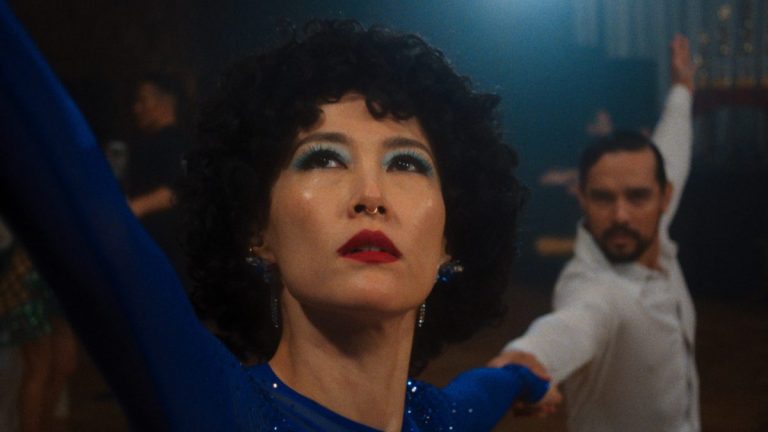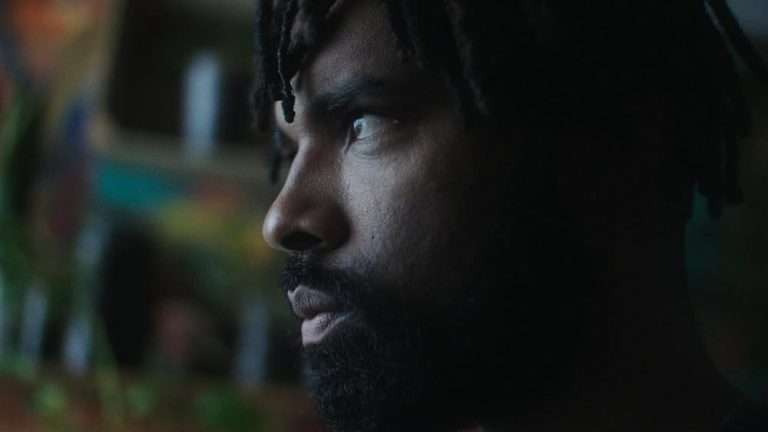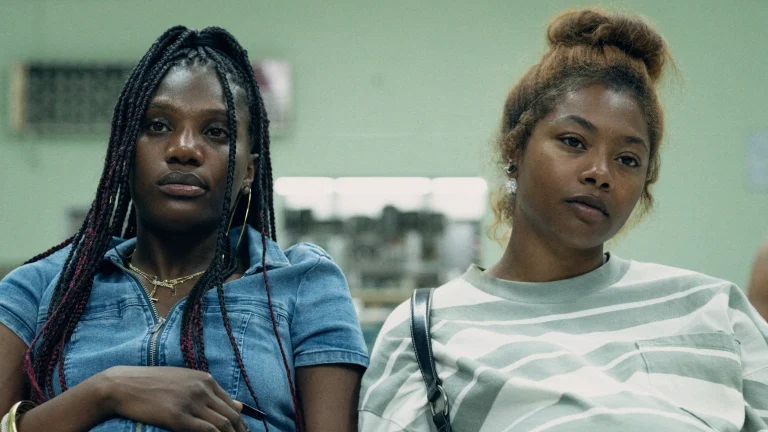There’s such an intimate, unflashy style to director Julian Chou’s handling of complex, personal revelations in “Blind Love” (2025) that you’re carried into its folds with little resistance. A subtle, minimalist tone belies the proceedings. There are no overwrought beats nor strains of emotional manipulation in places where those might have been easy, instant reflexes. Barring the occasionally heavy-handed use of blindness as metaphor, Chou maintains a direct simplicity, walking and not rushing with her characters. No arc is belabored as characters navigate a host of dilemmas, and reappraise choices and paths their lives can afford to take.
Circling a family, “Blind Love” is most well-realized when it focuses on Shu-yi (Ariel Lin). She is the prototype of the perfect wife and mother. She has no twinge of a personal life other than being devoted to domestic duties. Her husband, Feng (Frederick Lee), is a successful surgeon. They have two sons, Han (Jimmy Liu) and the seven-year-old Rui. Shu-yi’s life is well-padded. They have everything they can ask for. But the cracks are visible.
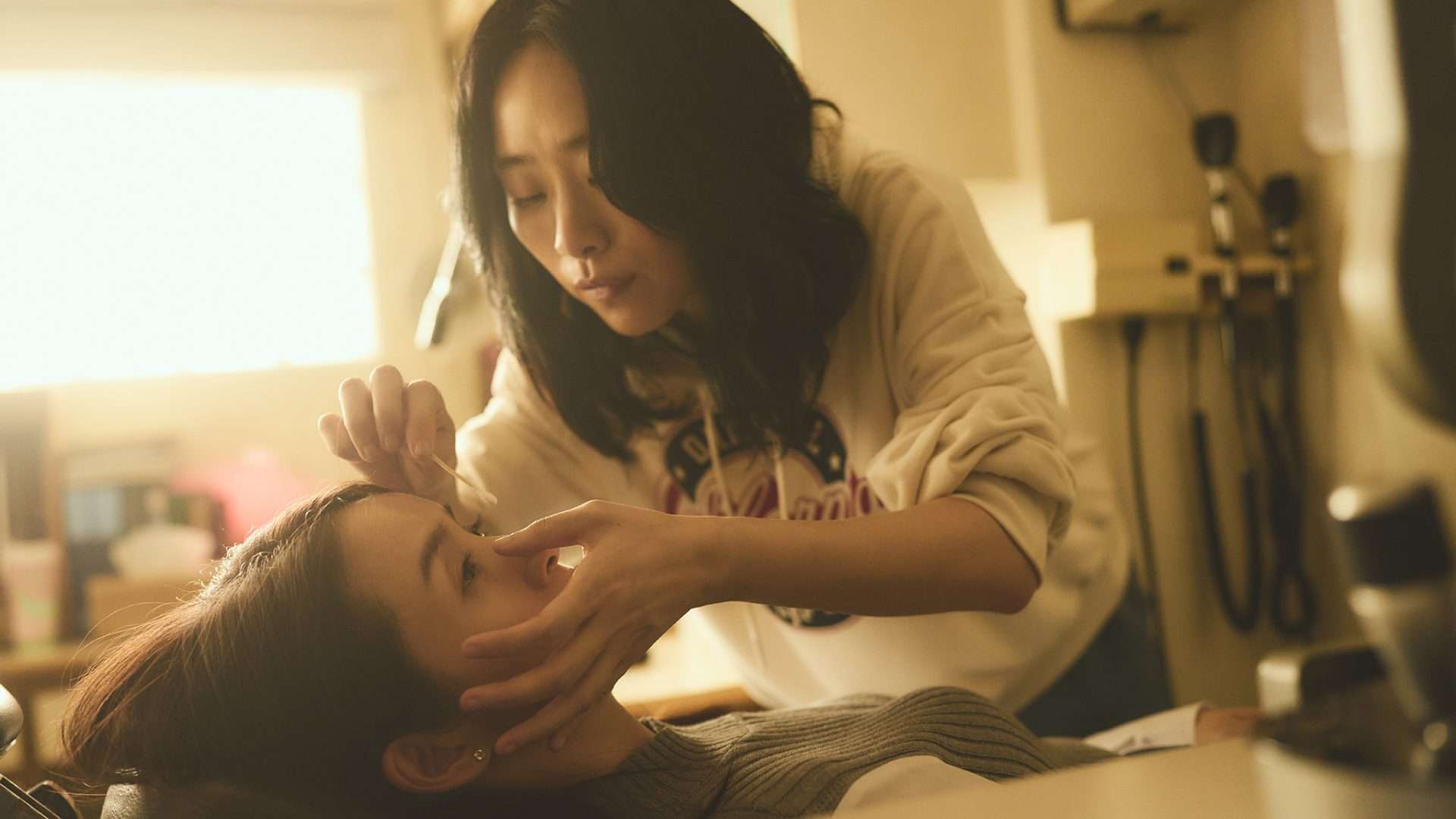
“Blind Love” is about repression, hiding, and keeping up appearances. Shu-yi’s palpable sadness stems from the denial she has cultivated and held damagingly close for decades. Through flashbacks, her queerness tumbles to the fore, a clandestine romance with her female classmate occupying a parallel track. We know this is headed for devastation. The sting of her mother’s judgment upon a shocked discovery of young Shu-yi’s queerness has tailed her through her life, long after her fading to the corners. It’s the kind of conditioning you internalize so deeply, seemingly intractably you stave off happiness because it projects illicit taboos. ‘Normal’ people don’t make such choices. The moment you do, it marks you out forever. She’s so coiled in this belief, the endless strain of mounting the veneer of the ideal family leaving behind only a tight shell of what she could be.
The family is borne down by Feng’s impositions. He’s perpetually wrangled in pleasing his boss, his gaze locked on promotions, heedless of what his demands put his family through. Feng expects Han to follow in his footsteps and major in medicine, despite the latter’s clear lack of interest. He can be cruel and terribly regressive, foisting his views on his kids. Moreover, he pushes the family through an indefatigable projection of ‘perfection’ and uncomplaining, subservient stability; Shu-yi co-opts this as the mantra by which to live and design the lives of her kids around.
It’s the quintessence of docile normative femininity. To stray out of it is to threaten to shatter the happy lie on which her entire life is pivoted. Going against it demands a complete overhaul, a radical re-alignment of her trajectory. It’d be filled with uncertainties and insecurities. Would it even have her children in it? She can’t bear the thought of losing them. It holds her back from transgressing, branching out from the conservative clump of leading a life.
Meanwhile, Han wrestles with his growing attraction to his friend’s neighbor, Xue-jin (Ke-Xi Wu). She is his mother’s age. Xue-jin is an ophthalmologist with a passion for photography. Her artistic work centers on intimacy. He is drawn to them and her. She is by turns evasive, playful, and teasing, luring him closer but also holding off at a tantalizing distance.
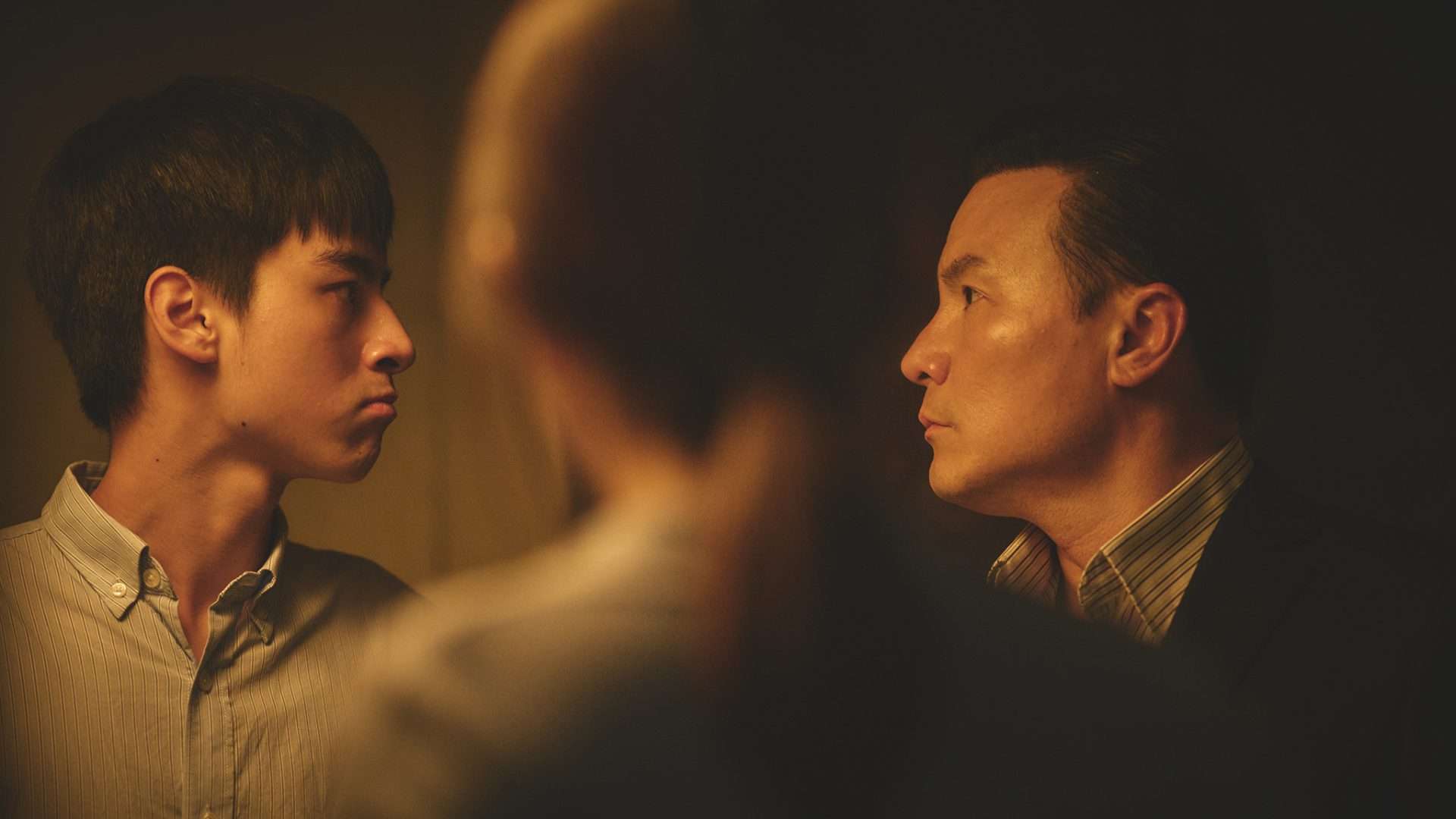
This, however, is the weakest thread of the film. To probe its deep-running connections to the family would be to divulge too much but the relationship between Han and Xue is perfunctorily drawn, existing as a sort of appendage to larger, necessary realizations. Neither was I much convinced of the bitty history of queerness, its reception within public and private spaces that shades the narrative. Nevertheless, there’s a solid, cheeky moment when Xue schools Han about fluid sexualities.
“Blind Love” strikes with poignant force in the small moments. Gut-wrenchingly honest moments unspool throughout. Shu-yi admits to feeling relief at her mother’s passing, but the guilt accompanying it comes swiftly and cutting. Julian Chou deftly orchestrates the dramatic threads when Shu-yi and Xue-jin’s tracks criss-cross. Lin and Wu burnish the film with heaving denial, pathos, and accelerating tension, their confrontation sharp-edged. “Blind Love” also grows to glow in the mother-son dynamic between Shu-yi and Han; he becomes her strongest push. A later scene where they come together to have a woozy dance makes the film imprint itself on your mind and heart. This is a wonderfully well-honed film.




![Duck, You Sucker [1971] Review: Sergio Leone’s Final Western](https://79468c92.delivery.rocketcdn.me/wp-content/uploads/2020/08/duck-you-sucker-cover-1-768x432.jpg)

